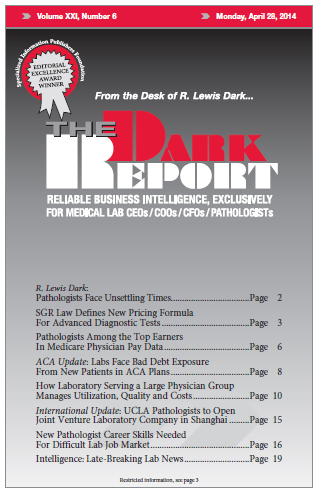CEO SUMMARY: Across the nation, a small but growing number of pathologists and lab directors has begun to engage career coaches and management recruiters specifically to sharpen their interviewing and career development skills, even though they are still employed. One expert says this trend reflects today’s tougher job market and recognition that career advancement requires …
New Skills Needed for Difficult Lab Job Market Read More »
To access this post, you must purchase The Dark Report.


